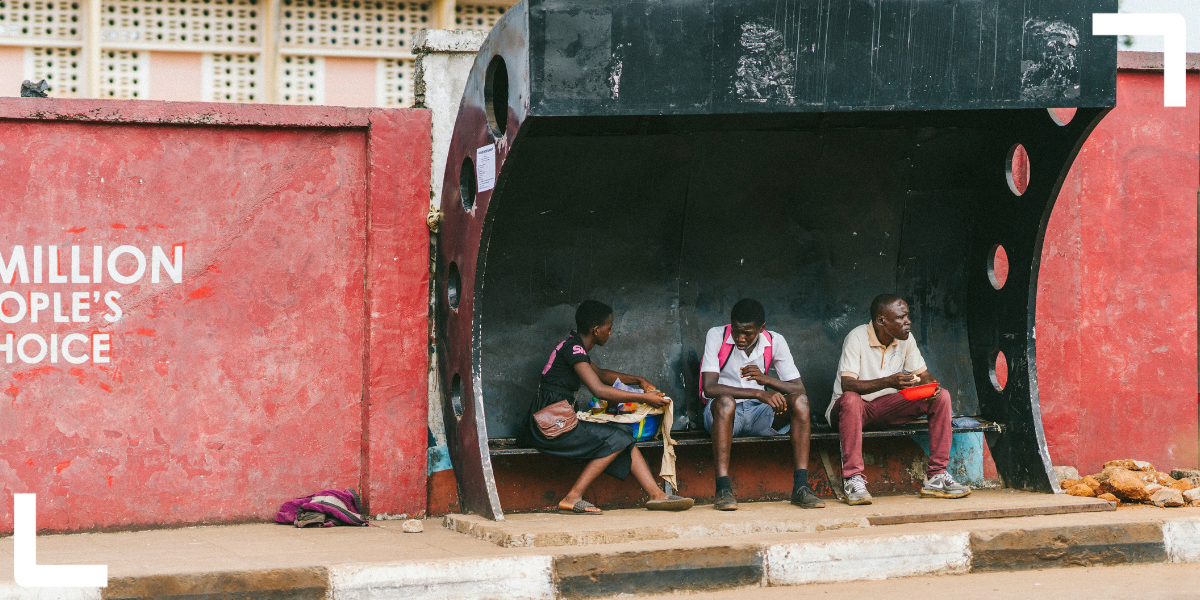Across African cities, young people experience specific barriers to accessing livelihoods. This not only constrains their agency and ability to fulfil their aspirations but also creates environments in which they both perpetrate and experience violence. The form this violence takes largely varies by gender, along with other aspects of identity, including class, sexuality, ethnicity and migration/citizenship status.
A new crosscutting report by Katy Davis, Patience Adzande, Nicola Banks, Elizabeth Dessie, Olha Homonchuk, Wangui Kimari, Paula Meth, Sia Morenike Tengbe, Patience Mudimu-Matsangaise, Charity Mwangi, Teurai Anna Nyamangara, Martha Sibanda, Sally Theobald and Rachel Tolhurst examines this gendered youth–(in)security nexus in African cities.
While existing narratives around these issues can be reductive and binary – often labelling young men as “perpetrators” and young women as “victims” of violence – this report argues that deeper and more nuanced accounts of (in)security are needed. Shifting this narrative is key to developing strategies to improve the lives of young people, along with the safety and security of all African city residents.
The authors combine insights from existing literature with findings from ACRC research across three social domains – youth and capability development, safety and security, and health, wellbeing and nutrition. They draw on political settlements analysis to reveal how youth, gender and insecurity are closely intertwined with dynamic urban political processes and power relations that shape, and often constrain, opportunities for young people.
Three key dimensions emerge from the research:
1. Gendered marginalisation of urban youth – Transitions into young adulthood in African cities are diverse and non-linear. The processes of forming identities and social relationships are gendered and heavily influenced by these varying contexts. Against a landscape of poor economic growth, restricted educational opportunities and limited participation in politics and governance, young men are often expected to provide for their families, while all young people face gendered barriers to entering work. Although there are signs of young women contesting existing gender norms, there is limited research on female gender identity among urban African youth.
2. The making of (in)securities – Different forms of “security work” can provide livelihood opportunities for young men in African cities. Sometimes this is formal, but in many cases, young men organise to fill a void where state security services are absent. This work inevitably exposes them to violence – often perpetuating stereotypical and harmful narratives about young men being “radical” or “criminal”, while downplaying the agency of young women in these spaces. Although women are largely excluded from visible security work, they are often involved in less visible day-to-day work that helps keep themselves and their communities safe.
3. The gendered experiences of (in)security – Impacts of violence are also gendered, with some emerging forms of masculinity in African cities being expressed as gender-based violence. Threats of gender-based and sexual violence, particularly from formal and informal security forces, significantly impact the mobility of city residents – especially at night – in ways that vary by gender and other social positionalities.
The authors highlight the deep interconnectedness of these three themes, with sociopolitical contexts of African cities often leading to young men and women being marginalised in different ways and sometimes being drawn into various forms of (in)security as a means of fulfilling gendered social norms – paradoxically creating security for some and insecurity for others. They argue that employing a youth-gender-(in)security lens in urban development research, advanced by a lived experience methodology, can help to centre young people’s agency and counter harmful gender stereotypes.
Header photo credit: Random Institute / Unsplash. Three young people wait for a bus in Freetown, Sierra Leone.
The African Cities blog is licensed under Creative Commons Attribution-NonCommercial-NoDerivatives 4.0 International (CC BY-NC-ND 4.0), which means you are welcome to repost this content as long as you provide full credit and a link to this original post.


